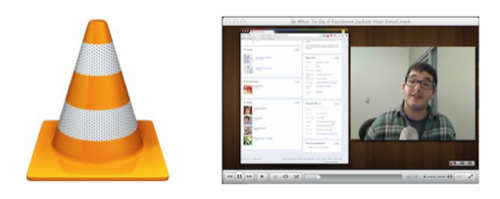
The Monday Version 2.0.2 release of the free open source VLC media player points out a surprising hole in the age of the Internet video – there is still no universal standard for video formats and players.
Fortunately, VLC is there to fill in the gaps among proprietary formats and competing ecosystems, playing just about every video in use.
New Version of VLC Boasts Mac Goodies
The latest update covers Windows and Mac OS X users, with Apple users getting a good portion of the new goodies, including support for the new Retina display and the Growl 1.3 OS X notification system.
Windows users won’t be left out: Both platforms will see a removal of the “building font cache” dialog box that reared its ugly head whenever you updated the software – a “feature” that tended to drive VLC users slightly crazy due to the time it took. And the new release improves performance on many video formats.
If you have never heard of VLC, you can be forgiven – outside of open source software circles, it doesn’t get a lot of attention. But after more than a billion downloads, the player is hardly a secret.
VLC Plays Everything
So what makes VLC so special? Simply put: It happily plays nearly every video format you can throw at it. Beyond JPEGs and MP4 videos, VLC can play MPEG-2, FLV Flash, DivX, H.264, MKV, WebM, WMV and MP3 files… just to name a few. On that basis alone, it’s a very useful tool to have on your computer – or smartphone.
VLC is about to become a potential powerhouse on mobile platforms, as Android users can now partake of a beta version of the player for their devices.
The “beta” label most definitely applies to the VLC Player for Android right now, and the app works only on ARM v7-with-NEON phones – owners of older devices are out of luck.
Android vs. iOS
Android devices already play a much wider variety of video formats than do iPhones and iPads, and once the kinks are smoothed out, this app will only extend that advantage. Being able to play video content in all forms without having to convert it first gives power downloaders a strong reason to choose Android over iOS devices.
(iPhone and iPad users can no longer install VLC through the App Store, because VLC’s GPLv2 license is incompatible with the App Store’s Terms of Service. VLC was available as an iPhone app briefly in 2010, and it works great on the iPad, too – if you managed to grab it back then.)
Apple’s one-device-for-everything, it-just-works sales pitch breaks down a bit here, since all the Retina displays in the world don’t do much good if you can’t watch the content you want – or even if you have to convert it or repurchase it because it’s in the wrong format.
VLC may be the best video player you never heard of, but the fact that we still need a universal media player is an issue that matters to everyone.

















